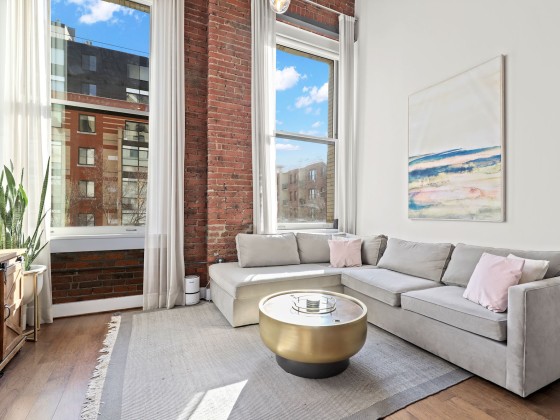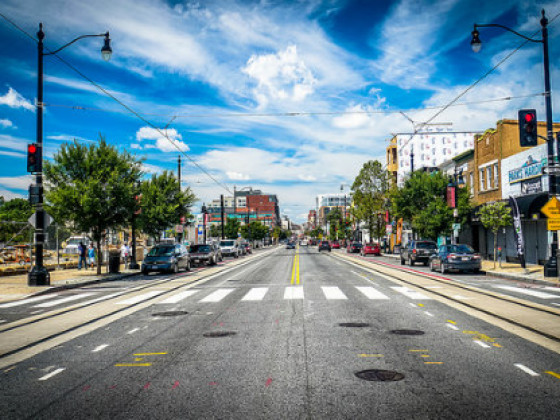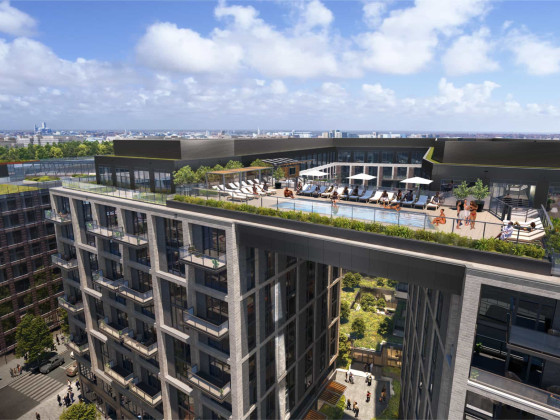 Huntington: The Quiet Neighborhood By the Beltway
Huntington: The Quiet Neighborhood By the Beltway
✉️ Want to forward this article? Click here.
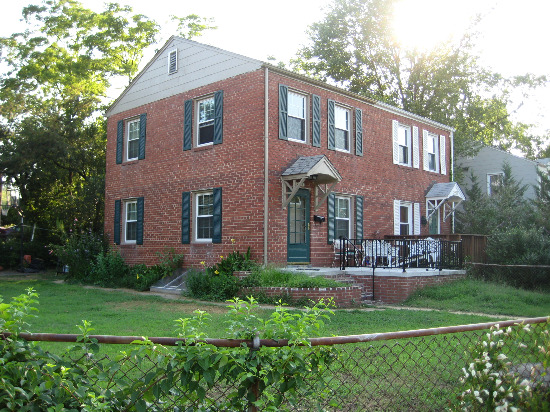
A home in Huntington.
Standing in his spacious yard in Huntington amidst an untamed profusion of flowers, Mike Singletary gestured at the houses around him.
“This?” he asked. “It’s what I call a pioneer community. You’re on the frontier here.”
That’s a fitting description for Huntington, the Northern Virginia neighborhood at the end of Metro’s Yellow Line. It’s Alexandria’s next-door neighbor, but you won’t see hip bars and white-tablecloth restaurants here. Huntington is still very much in an in-between stage, shifting from its roots as a lower and middle-class enclave to the site of budding townhouse and condo developments taking belated advantage of the neighborhood’s location.
Like most frontiers, Huntington has a slightly rough edge, but it also has an unpretentious feel that’s uncommon so close to the Beltway.
From WWII Vets to a Wide Variety
The neighborhood lies just south of Old Town; the two are separated by the Beltway, which forms Huntington’s northern border. The area is bounded to the west by Kings Highway and to the southeast by Richmond Highway, and the southern edge rubs up along the Jefferson Manor neighborhood.
For years, the neighborhood housed many of Alexandria’s service and construction workers. While there are a sizable number of single and married professionals who live in Huntington and work in Old Town and the District, many residents have been in the area for years.
“There’s a variety of ages, demographics, and races,” said Singletary, who has lived in the neighborhood for five years and works in Tysons Corner. “Some of the people have been here since the 1940s.”
“They’re All End Units”
Huntington Avenue is the neighborhood’s main spine, and building complexes dot both sides of the road. There is ongoing construction (Huntington Reserve); townhomes that were built several decades ago as well as brand new ones; new (the Midtown) and not-so-new (the Riverside, Hunting Creek Club) apartment and condo high rises with balconies and pools; and a few low, rambling complexes that might’ve once held garden apartments but converted to condos some time ago (Huntington Club and Farrington Place).
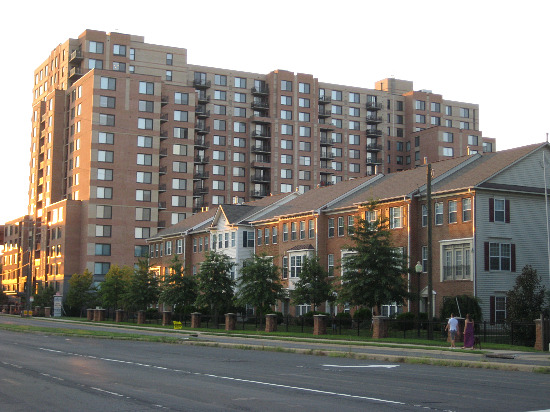
Apartment building and townhomes along Huntington Avenue.
But what Huntington is really known for are the two-story brick duplexes lining the streets off of Huntington Avenue that were built in the 1940s to house veterans returning from World War II. They’re in a wide variety of conditions: some have all the original features, which means pine or oak floors but also small galley kitchens; some are fully or partly covered in vinyl siding with cracked concrete steps. And some are in good shape, with well-maintained yards and kitchens that have been opened up and transformed.
Chris Upham, a real estate agent with Coldwell Banker who lives in Huntington, likes to point out that “they’re all end units.” That is, both units of each duplex have front yards, back yards, and side yards, sometimes with enough space for a garden or a large shed.
Good Deals And…Not So Good
Upham also likes to say that Huntington has the biggest homes for the least money within walking distance of the Metro.
“I’ve seen million dollar homes in Old Town that don’t have as big a deck or backyard as some of the homes in Huntington,” he explained.
Forty-one of Huntington’s duplex units, mostly two-bedroom homes with one bathroom, have sold since the beginning of the year with prices ranging from $160,000 to $388,000, according to Upham. New townhouses in the neighborhood are considerably more expensive; a three bedroom, two-and-a-half bath property sells for around $452,000 on average. Condos are cheaper, possibly because most of them are in older buildings; most are two bedroom units with an average sale price is $247,388.
Do You Like Takeout?
To be blunt, there isn’t much going on in Huntington in terms of a bar and restaurant scene. Huntington Avenue has one commercial area with a grungy strip mall and some basic takeout restaurants (Old Chicago Pizzeria, Happy Garden, Pizza Boli’s). And at the street’s intersection with Richmond Highway, there’s a shopping center with a doctor, dentist, hair salon, and cleaners, plus a Thai restaurant.
Other amenities aren’t far away, though. Jefferson Manor has a small shopping center, and the Beacon Center, farther down Richmond Highway, is home to a Giant supermarket, several big box stores like Office Depot and Lowe’s, and a number of chain restaurants. Old Town Alexandria is also just about ten minutes away by car or Metro.
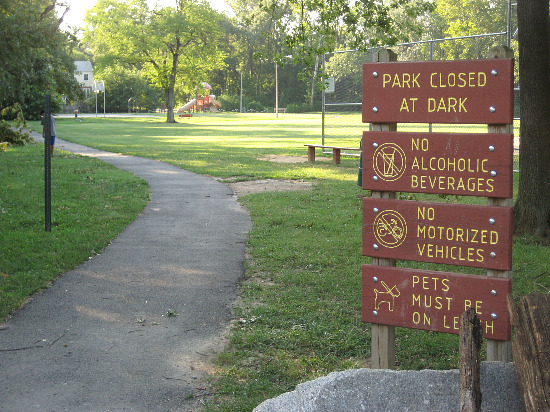
Huntington Park
Families, Green Space and Softball
“There are a number of young families,” Chris Upham said of Huntington. “People might have their first and second kids here, and then they’ll look for something larger.”
Many of the large yards are cluttered with children’s toys and the area is served by a few playgrounds. South of Huntington Avenue is a small community center as well as Huntington Park, a large grassy space with a baseball field.
“It’s one of the few places within a 15-minute drive of DC that’s a real neighborhood,” James Caton, a five-year resident, said. “On a weekend, you see kids up and down the street. The park sometimes has about 30 cars, softball games going on, and kids running around.”
Metro and the Beltway
The area is well served by the Huntington Metro, and by Fairfax connector bus lines 101, 109, 151, 171, and 310. For drivers, the neighborhood lies between two exits on the Beltway and isn’t far from I-395.
Parking in the neighborhood is simple. The townhouse, condo, and apartment complexes come with ample spaces, and parking on the residential streets off of Huntington Avenue is never competitive.
It Seems Safe, But Does It Feel Safe?
Caton said he doesn’t worry about crime in the area, but Cathy Burk, 25, who’s been living in a high-rise apartment building for the last two years, isn’t quite as sure. She said she does feel safe, but the neighborhood can seem a little sketchy for a woman walking back from the Metro at night alone.
“I haven’t felt unsafe myself, but I can see why someone might,” she said.
The Bottom Line
Huntington has some obvious pluses and minuses. Proximity to the Metro is a major bonus, of course, but it’s the residential streets, with their brick duplexes, large yards, and neighborhood vibe, that many residents appear to have fallen in love with. However, you will not find bountiful restaurant, bar and shopping options here, which will likely be a turn-off for many prospective buyers.
Amanda Abrams is a Washington, DC-based journalist who has written feature stories for The Washington Post, Christian Science Monitor, and Washington City Paper.
More Stuff about Huntington
- ZIP code: 22303
- Huntington Community Association
- Hill East real estate data and profile from Redfin
- Huntington rental listings on Craigslist
See other articles related to: hoods, huntington
This article originally published at http://dc.urbanturf.production.logicbrush.com/articles/blog/huntington_the_quiet_neighborhood/2378.
Most Popular... This Week • Last 30 Days • Ever

This article will delve into how online home valuation calculators work and what algo... read »
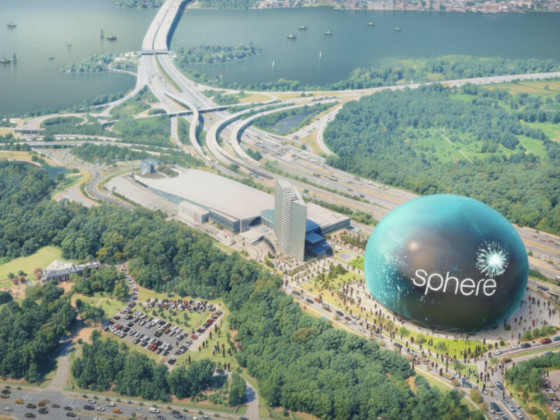
On Sunday, Sphere Entertainment Co. announced plans to develop a second U.S. location... read »
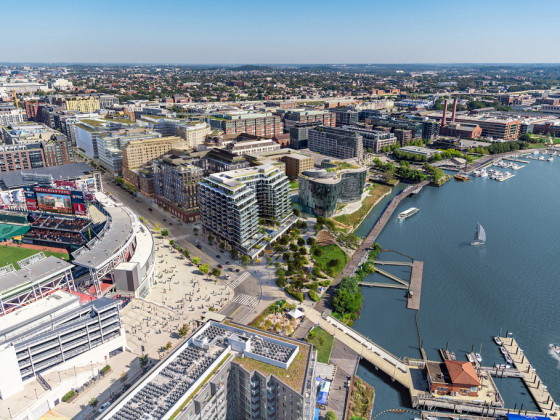
Navy Yard is one of the busiest development neighborhoods in DC.... read »
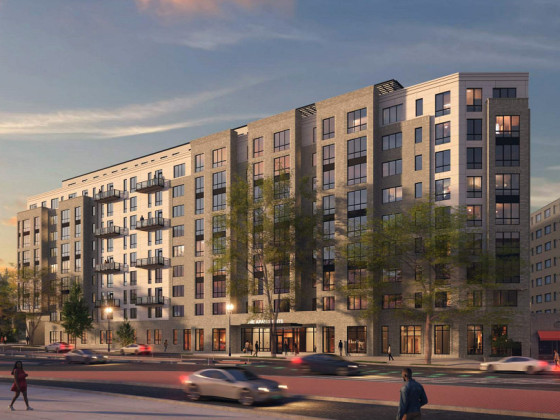
Carr Properties' planned conversion of a vacant nine-story office building into a 314... read »
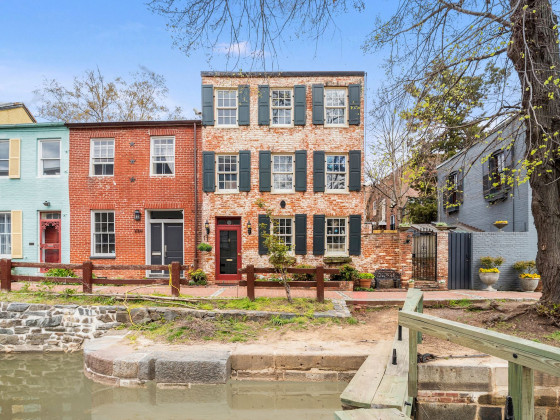
While the national housing market continues to shift in favor of buyers, the DC regio... read »
DC Real Estate Guides
Short guides to navigating the DC-area real estate market
We've collected all our helpful guides for buying, selling and renting in and around Washington, DC in one place. Start browsing below!
First-Timer Primers
Intro guides for first-time home buyers
Unique Spaces
Awesome and unusual real estate from across the DC Metro





